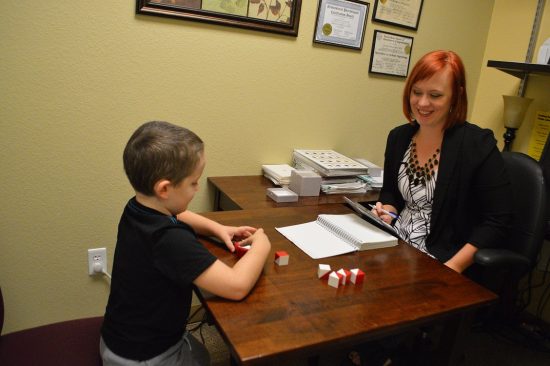Psychological and Neuropsychological Assessments
At Restore Behavioral Health, we believe that treatment outcomes are optimized when based on a comprehensive assessment of each individual’s psychological and neuropsychological functioning. There are many different reasons why someone may present with cognitive, emotional, behavioral, or relational difficulties. Presuming a diagnosis without accurate assessment often leads to ineffective or inefficient treatment approaches.

For example, assuming that a child has ADHD based on a questionnaire alone often overlooks many of the emotional, relational, family systems and neurocognitive difficulties that may be contributing to a child’s difficulties in school. It is common to see a child continue to struggle even after a trial of a psychostimulant medication because there are other undiagnosed issues complicating the case. Likewise, presuming that a patient has a Mood Disorder without conducting a thorough assessment of stress, anxiety, depression, personality functioning, and trauma, can lead to incorrect medication and therapy treatment approaches.
RBH offers the full suite of psychological and neuropsychological evaluation tools to determine the individual’s unique strengths as well as areas of deficiency needing support of treatment. Comparing individual performance to standardized scores from a normative database allows for precise determination in degree of clinical severity and functional impairment. RBH believes it is important to take the time to conduct a thorough assessment so that accurate and specific treatment plans can be developed. Progress in therapy is greatly facilitated by knowing the specific psychological functioning of the individual. Academic Accomodations are more effective when the specific areas of deficiency have been identified. And appropriate medication selections are optimized when based on thorough assessment of psychological and neuropsychological functioning.

RBH offers evaluations for children, adolescents, adults, and the elderly across a wide variety of the following domains:

Psychological Functioning:
- Depression
- Mood Disorders
- Anxiety/Panic
- Stress
- Trauma/PTSD
- Suicidality
- Eating Disorders (Anorexia, Bulimia, Binge Eating)
- Insomnia
- Behavioral Difficulties (Oppositionality, Hyperactivity, Impulsivity)
- Addictions
- Parent-Child Relational Difficulties
- Internalization/Externalization
- Adaptive Functioning
- Self-Esteem/Self-Concept
- Relational Function
- Personality Function
- Somatoform Disorders
- Psychosis/Thought Disorders
- Psychological Factors Affecting Medical Conditions
- Pre-Surgical Clearance (Weight Loss Surgery; Pain Surgery)
- Autism/Asperger’s Disorder
- Social Pragmatic Communication/Social Responsiveness

Neuropsychological Functioning
- ADHD
- Learning Disabilities
- Dementia
- Orientation
- Auditory Attention
- Visual Attention
- Verbal Memory
- Immediate/Working Memory
- Delayed Memory
- Visual Memory
- Executive Functioning
- Inhibitory Control/Impulse Control
- Deductive Reasoning
- Categorical Reasoning
- Cognitive Flexibility
- Auditory Processing
- Processing Speed/Efficiency
- Set Shifting
- Working Memory
- Intellectual Functioning/IQ
- Verbal and NonVerbal Problem Solving Ability
- Achievement Functioning
- Visuospatial Functioning
- Sensorimotor Functioning
- Sensory Integration Inefficiencies
- Language Functioning (Expressive, Receptive, Pragmatic)

